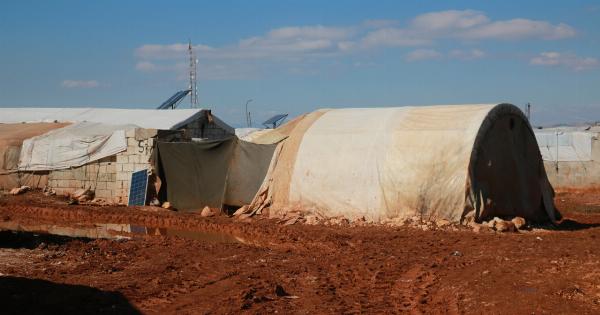It’s no secret that the world we live in today is facing numerous challenges and uncertainties. From social and political turmoil to economic instability and environmental degradation, the outlook seems bleak at best.
In this article, we will delve into the various aspects that contribute to this pessimistic view and analyze the potential consequences for our future.
The Political Quagmire
One of the primary reasons for the bleak outlook is the state of global politics. In recent years, we have witnessed an alarming rise in populism, nationalism, and polarization.
Political leaders are often more focused on their own agendas rather than the collective well-being of their constituents. Understandably, this has led to a breakdown in trust and cooperation between nations.
Furthermore, the widening gap between the rich and the poor has created a sense of disillusionment among the masses.
People are growing increasingly resentful of the elites who seem more interested in preserving their own privilege rather than addressing the pressing issues of inequality and social justice.
The Economic Doldrums
The global economy has also been a victim of the bleak outlook. The wealth gap mentioned earlier has had a significant impact on economic growth and stability. As the rich become richer, the majority of the population struggles to make ends meet.
This has resulted in a decline in consumer spending and a sluggish demand for goods and services.
Additionally, the ongoing trade wars, economic sanctions, and protectionist policies have further exacerbated the economic challenges.
These practices have disrupted global supply chains and hindered international trade, leading to a decrease in economic cooperation between nations. The consequences of these actions will likely be felt for years to come.
The Environment in Crisis
Perhaps the most alarming aspect of the bleak outlook is the environmental crisis we are currently facing. Climate change, deforestation, pollution, and the depletion of natural resources are all contributing to a rapidly deteriorating planet.
The consequences of these actions are not only detrimental to the environment but also pose enormous risks to human health and well-being.
Despite mounting scientific evidence and calls for urgent action, many governments and industries seem reluctant to prioritize environmental sustainability.
The short-term gains and profit-driven mindset often take precedence over the long-term consequences of our actions. This cavalier attitude towards the environment is pushing us towards a point of no return.
The Impact on Society
The bleak outlook we face today has far-reaching effects on society as a whole. The erosion of trust, deepening inequality, and environmental crisis are all contributing to a sense of hopelessness and despair among individuals.
Mental health issues such as anxiety and depression are on the rise, as people grapple with the overwhelming challenges of the world.
Furthermore, the lack of effective leadership and global cooperation hinders our ability to address these issues adequately.
The absence of visionary leaders who can inspire change and rally nations towards a common goal only adds to the mounting pessimism.
The Path Forward
While the outlook may seem bleak, it is essential to remember that change is possible. We must prioritize collective action and work towards finding sustainable solutions to the problems we face. Here are a few areas that need immediate attention:.
1. Political Reform
Reforming political systems to promote transparency, accountability, and inclusivity is crucial. By electing leaders who prioritize the common good and hold them accountable, we can bring about positive change.
2. Economic Redistribution
Addressing income inequality and wealth redistribution are vital steps towards a more equitable society. This can be achieved through progressive taxation, social programs, and ensuring fair wages for all.
3. Environmental Consciousness
We must prioritize sustainable practices and reduce our carbon footprint. Transitioning to renewable energy sources, promoting conservation efforts, and adopting eco-friendly policies are essential to mitigating further damage to the environment.
4. Global Cooperation
Effective collaboration between nations is paramount in addressing global challenges. By setting aside political differences and working towards common goals, we can create a more harmonious and sustainable future.
Conclusion
The bleak outlook that looms over our world today is undeniably concerning. However, by acknowledging the challenges we face and taking proactive steps towards change, we can work towards a brighter future.
It is essential for individuals, communities, and governments to come together and take collective responsibility. Let us strive to leave behind a world that is better, more equitable, and sustainable for generations to come.





























